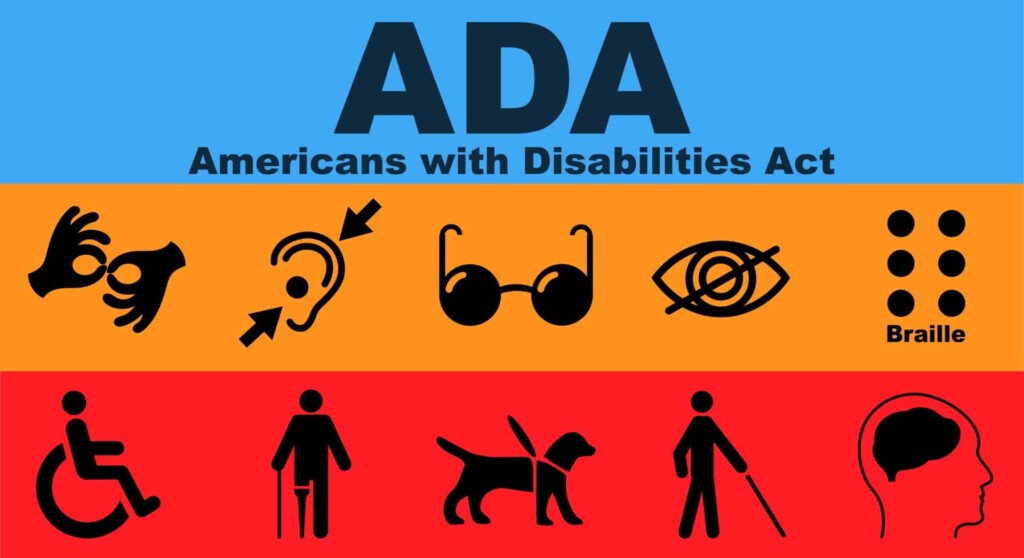Fraud & Scams Are So Big We Need To Teach It In Schools
An Editorial About The Need To Share Anti-Fraud Information With Children!
Authors:
• Yaniv Hanoch, Professor in Decision Science, University of Southampton
• Stacey Wood, Professor of Psychology, Scripps College
Article Abstract
The growing prevalence of fraud demands a critical shift in education, urging the inclusion of anti-fraud teachings in school curricula. With fraud cases rising by 25% in the UK alone, encompassing over 40% of individual crimes, the traditional view of fraud as an issue solely affecting the gullible or vulnerable is outdated.
Misconceptions about victims, spanning various age groups including tech-savvy individuals and young adults, highlight the need for comprehensive educational initiatives. Current school programs often lack emphasis on fraud prevention, warranting the development of age-specific educational modules. Moreover, increased enforcement, tech regulation, and innovative policies are vital in combating fraud across societal tiers.
Fraud Is A Problem So Big We Need To Start Teaching Children How To Spot It In Schools
Have you or someone you know been a victim of fraud? If so, that’s not unusual.
The UK’s Office for National Statistics (ONS) reported a rise of 25% in the number of fraud offences in 2021 compared to 2020 in the UK. Representing over 40% of all crimes against individuals, fraud is the most common crime in the UK.
If these statistics are not alarming enough, there is some evidence that AI is making it harder to detect scams.
People often blame fraud victims for being foolish or trusting enough to fall for a scam. But it’s time to accept that it can happen to anyone. It’s a problem so large we need to revise our concept of fraud as something that only happens to gullible or vulnerable people. The human brain can’t keep up with all of the new technology-enabled types of fraud.
So we need a new approach that holds financial institutions and businesses responsible for identifying or facilitating fraud and that harnesses AI to spot suspicious transactions. It’s not reasonable to expect consumers to know when they’re being scammed if banks and social media platforms can’t.
Who Falls Prey to Fraud
If you were asked who is the most likely to become a victim of fraud, what would be your answer? If you are like most people, you probably thought about older adults. Investment bankers, IT experts or young adults might not have come to mind.
This misconception about who is vulnerable or susceptible to fraud is one of the core problems surrounding the topic of fraud. For example, a 2010 survey by credit reporting company Experian examining identity fraud in the UK found that two age groups, 25-34 and 35-44, represented 54% of the victims, while those over 65 represented only 4% of the victims of that type of fraud.
With cryptocurrency, victims tend to be young, well-educated, professional, and traders who have risky portfolios.
It is enough to read the list of main investors (and victims) in the fraud-ridden cryptocurrency exchange FTX and fraudulent medical technology company Theranos cases to realise that even the savviest investors and celebrities can become victims. Their supporters included media moguls, politicians and hedge fund managers.
A 2023 report by UK Finance indicates that 18- to 24-year-olds are being increasingly targeted by fraudsters, and are far more likely to fall prey to an impersonation scam, compared to those aged 65 and over. Also, the rate of 13- to 17-year-olds falling prey to scams via gaming has seen a sharp rise.
- Developing educational and therapeutic programmes
- Many schools around the world have introduced online safety programmes.
The programmes currently on offer, however, tend to be rather thin on how to protect yourself from fraud. Children’s charity the NSPCC, for example, has programmes for protecting children from online abuse, staying safe while using social media, and from legal but harmful content – but not for online scams.
Fraud prevention should be taught in schools and universities as part of the curriculum.
For older adults, charities the AARP and AgeUK offer guidance and resources, but it is unclear how effective or widely used they are.
Fraud prevention programmes, training, and information have rarely been scrutinised and we lack data on their effectiveness. We need to develop programmes for each age group and evaluate their effectiveness.
Improve Deterrence
One of the most important theories in criminology is deterrence theory, which says crime reduction relates to the severity of the punishment, and, more importantly, the likelihood of being caught.
Research suggests that increasing the likelihood of being caught is far more effective than increasing punishment. However, fraudsters have little to worry about. By the UK government’s admittance, fraud accounts for over 40% of all crimes yet it receives less than 1% of police resources.
Businesses Must Better Protect Consumers
During the COVID pandemic, media outlets reported that Google blocked 18 million coronavirus scam emails every day. Despite these efforts, according to a report by the Federal Trade Commission (FTC), a US agency that enforces consumer rights, tech companies and especially social network sites are a breeding ground for scammers.
Indeed, the FTC reported that a quarter of the people who lost money to fraud said the process started on social networking platforms.
The nature of social media sites provides scammers with the ability to hide behind fake personas and pretend to be a legitimate business. They also allow scammers to reach millions of people with a press of a button —- particularly younger adults who tend to be more heavy and prolific users of social networking sites.
The FTC has issued orders to a range of social media – including Meta, TikTok and YouTube – seeking information on how these companies screen for malicious and nefarious ads and scams.
Introduce New Policies
California legislators are considering a bill offering older adults greater protection against fraud by holding banks responsible when tellers facilitate fraudulent transactions.
In the UK, former home secretary Suella Braverman presented a a fraud strategy the parliament in May 2023, which proposes a range of measures such as banning all phone calls related to financial products.
We see these two bills as a move in the right direction but more work is needed, and urgently. Policymakers must allocate funding to research and law enforcement agencies, introduce laws that provide greater protection to people, and collaborate with international law enforcement bodies, such as Interpol.
Fraud affects society on all levels: individuals, organisations and governments. We are all in it together, whether we like it or not.
Appendix:
- Nature of fraud and computer misuse in England and Wales – Office for National Statistics (ons.gov.uk)
- Fraud represents 41% of all crime against individuals in England and Wales (shorthandstories.com)
- Most likely victims of financial scams probably aren’t who you think | Financial Post
- Gen Z more likely to be tricked by criminals and fall for impersonation scams | Insights | UK Finance
- lloyds-bank-game-fraud-report.pdf (lloydsbankinggroup.com)
- How we promote and teach online safety in schools? – The Education Hub (blog.gov.uk)
- Keeping children safe online | NSPCC
- Fraud Strategy: stopping scams and protecting the public (accessible) – GOV.UK (www.gov.uk)
More:
- Talking To Kids/Youth About Online Risk [VIDEO] (scamsnow.com)
- Teens And Young Adults: Now A Major Target Of Scammers (scamsnow.com)
- IoT Toys/Internet Connected Toys – An Ever Growing Danger For Children – Holidays 2023 (scamsnow.com)
- Social Media – Where Scams Are Born! (scamsnow.com)
This article was reprinted from The Conversation with permission.
SCARS Resources:
- For New Victims of Relationship Scams newvictim.AgainstScams.org
- Subscribe to SCARS Newsletter newsletter.againstscams.org
- Sign up for SCARS professional support & recovery groups, visit support.AgainstScams.org
- Find competent trauma counselors or therapists, visit counseling.AgainstScams.org
- Become a SCARS Member and get free counseling benefits, visit membership.AgainstScams.org
- Report each and every crime, learn how to at reporting.AgainstScams.org
- Learn more about Scams & Scammers at RomanceScamsNOW.com and ScamsNOW.com
- Global Cyber Alliance ACT Cybersecurity Tool Website: Actionable Cybersecurity Tools (ACT) (globalcyberalliance.org)
- Self-Help Books for Scam Victims are at shop.AgainstScams.org
- Donate to SCARS and help us help others at donate.AgainstScams.org
- Worldwide Crisis Hotlines: International Suicide Hotlines – OpenCounseling : OpenCounseling
- Campaign To End Scam Victim Blaming – 2024 (scamsnow.com)
More ScamsNOW.com Articles
-/ 30 /-
What do you think about this?
Please share your thoughts in a comment below!
SCARS LINKS: AgainstScams.org RomanceScamsNOW.com ContraEstafas.org ScammerPhotos.com Anyscam.com ScamsNOW.com
reporting.AgainstScams.org support.AgainstScams.org membership.AgainstScams.org donate.AgainstScams.org shop.AgainstScams.org
youtube.AgainstScams.org linkedin.AgainstScams.org facebook.AgainstScams.org
Important Information for New Scam Victims
- Please visit www.ScamVictimsSupport.org – a SCARS Website for New Scam Victims & Sextortion Victims.
- SCARS Institute now offers its free, safe, and private Scam Survivor’s Support Community at www.SCARScommunity.org – this is not on a social media platform, it is our own safe & secure platform created by the SCARS Institute especially for scam victims & survivors.
- SCARS Institute now offers a free recovery learning program at www.SCARSeducation.org.
- Please visit www.ScamPsychology.org – to more fully understand the psychological concepts involved in scams and scam victim recovery.
If you are looking for local trauma counselors, please visit counseling.AgainstScams.org
If you need to speak with someone now, you can dial 988 or find phone numbers for crisis hotlines all around the world here: www.opencounseling.com/suicide-hotlines
Statement About Victim Blaming
Some of our articles discuss various aspects of victims. This is both about better understanding victims (the science of victimology) and their behaviors and psychology. This helps us to educate victims/survivors about why these crimes happened and not to blame themselves, better develop recovery programs, and help victims avoid scams in the future. At times, this may sound like blaming the victim, but it does not blame scam victims; we are simply explaining the hows and whys of the experience victims have.
These articles, about the Psychology of Scams or Victim Psychology – meaning that all humans have psychological or cognitive characteristics in common that can either be exploited or work against us – help us all to understand the unique challenges victims face before, during, and after scams, fraud, or cybercrimes. These sometimes talk about some of the vulnerabilities the scammers exploit. Victims rarely have control of them or are even aware of them, until something like a scam happens, and then they can learn how their mind works and how to overcome these mechanisms.
Articles like these help victims and others understand these processes and how to help prevent them from being exploited again or to help them recover more easily by understanding their post-scam behaviors. Learn more about the Psychology of Scams at www.ScamPsychology.org
SCARS INSTITUTE RESOURCES:
If You Have Been Victimized By A Scam Or Cybercrime
♦ If you are a victim of scams, go to www.ScamVictimsSupport.org for real knowledge and help
♦ SCARS Institute now offers its free, safe, and private Scam Survivor’s Support Community at www.SCARScommunity.org/register – this is not on a social media platform, it is our own safe & secure platform created by the SCARS Institute especially for scam victims & survivors.
♦ Enroll in SCARS Scam Survivor’s School now at www.SCARSeducation.org
♦ To report criminals, visit https://reporting.AgainstScams.org – we will NEVER give your data to money recovery companies like some do!
♦ Follow us and find our podcasts, webinars, and helpful videos on YouTube: https://www.youtube.com/@RomancescamsNowcom
♦ Learn about the Psychology of Scams at www.ScamPsychology.org
♦ Dig deeper into the reality of scams, fraud, and cybercrime at www.ScamsNOW.com and www.RomanceScamsNOW.com
♦ Scam Survivor’s Stories: www.ScamSurvivorStories.org
♦ For Scam Victim Advocates visit www.ScamVictimsAdvocates.org
♦ See more scammer photos on www.ScammerPhotos.com
You can also find the SCARS Institute’s knowledge and information on Facebook, Instagram, X, LinkedIn, and TruthSocial
Psychology Disclaimer:
All articles about psychology and the human brain on this website are for information & education only
The information provided in this and other SCARS articles are intended for educational and self-help purposes only and should not be construed as a substitute for professional therapy or counseling.
Note about Mindfulness: Mindfulness practices have the potential to create psychological distress for some individuals. Please consult a mental health professional or experienced meditation instructor for guidance should you encounter difficulties.
While any self-help techniques outlined herein may be beneficial for scam victims seeking to recover from their experience and move towards recovery, it is important to consult with a qualified mental health professional before initiating any course of action. Each individual’s experience and needs are unique, and what works for one person may not be suitable for another.
Additionally, any approach may not be appropriate for individuals with certain pre-existing mental health conditions or trauma histories. It is advisable to seek guidance from a licensed therapist or counselor who can provide personalized support, guidance, and treatment tailored to your specific needs.
If you are experiencing significant distress or emotional difficulties related to a scam or other traumatic event, please consult your doctor or mental health provider for appropriate care and support.
Also read our SCARS Institute Statement about Professional Care for Scam Victims – click here
If you are in crisis, feeling desperate, or in despair, please call 988 or your local crisis hotline – international numbers here.
More ScamsNOW.com Articles
A Question of Trust
At the SCARS Institute, we invite you to do your own research on the topics we speak about and publish. Our team investigates the subject being discussed, especially when it comes to understanding the scam victims-survivors’ experience. You can do Google searches, but in many cases, you will have to wade through scientific papers and studies. However, remember that biases and perspectives matter and influence the outcome. Regardless, we encourage you to explore these topics as thoroughly as you can for your own awareness.

























![NavyLogo@4x-81[1] Fraud & Scams Are So Big We Need To Teach It In Schools - 2024](https://scamsnow.com/wp-content/uploads/2025/04/NavyLogo@4x-811.png)
![scars-institute[1] Fraud & Scams Are So Big We Need To Teach It In Schools - 2024](https://scamsnow.com/wp-content/uploads/2025/04/scars-institute1.png)

![niprc1.png1_-150×1501-1[1] Fraud & Scams Are So Big We Need To Teach It In Schools - 2024](https://scamsnow.com/wp-content/uploads/2025/04/niprc1.png1_-150x1501-11.webp)